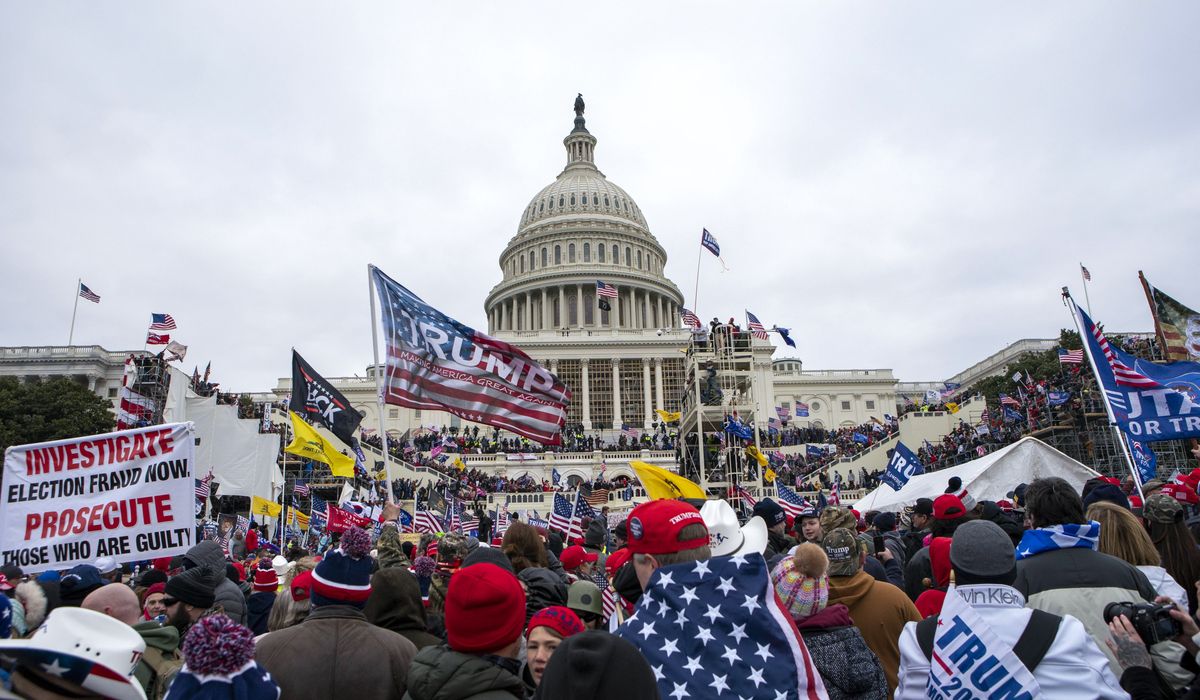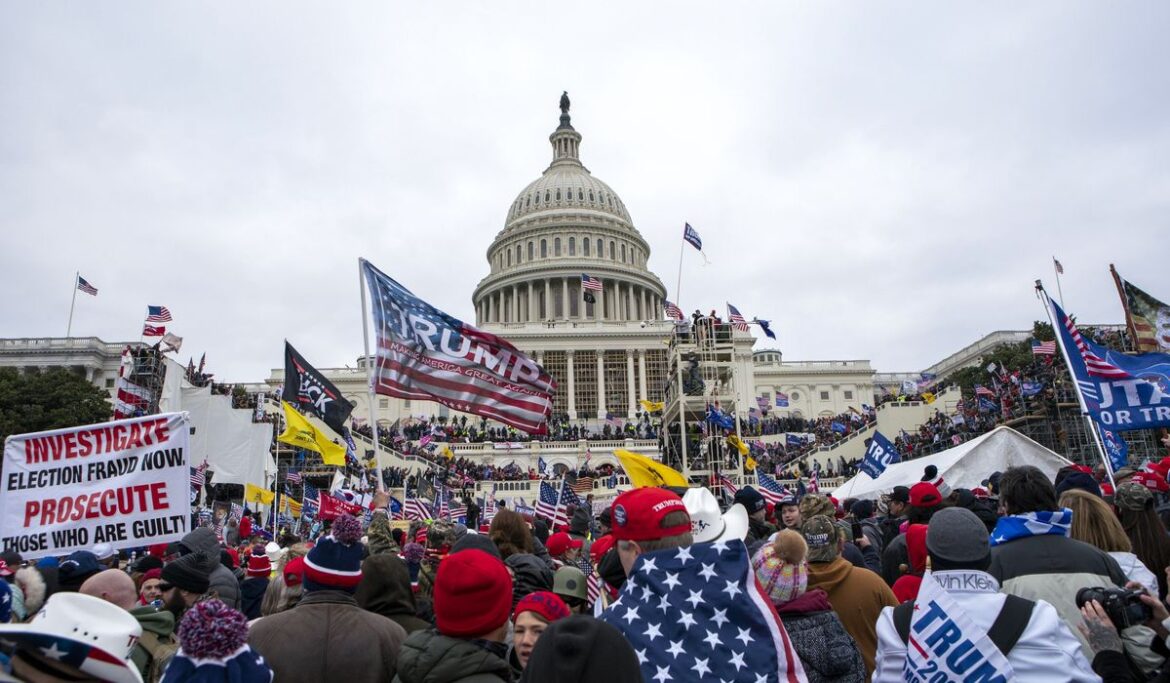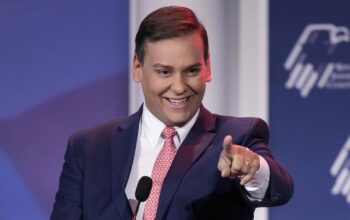
Rep. Bennie Thompson provided a glimpse Sunday into the direction of the House investigation into the Jan. 6 attack on the Capitol, saying it involved a “coordinated effort” by some perpetrators and refusing himself to rule out a criminal referral against former President Donald Trump.
Nearly a year after the attack, the probe’s point man said the crowd that marched to the Capitol was a combination of disheartened Trump supporters and organized instigators bent on undermining the 2020 presidential election.
“Obviously, some people came upset with what happened in the November election,” Mr. Thompson, Mississippi Democrat, said on NBC’s “Meet the Press.”
“But others came with ulterior motives. And so you had citizens who have the right to protest, who thought that was the end of what would happen, and you had others who obviously came with bear spray, camouflage, Kevlar, hockey sticks, everything, prepared to do something else,” he said.
More than 700 people have been charged with federal crimes related to the rioting, but the biggest question remains whether the Democrat-run committee will build a criminal case against Mr. Trump.
Mr. Thompson said that the select committee has yet to determine whether a lack of action on Mr. Trump’s part to stop the riots would constitute a criminal offense.
But if so, the panel would not hesitate to refer the matter to the Justice Department.
“If there’s any confidence on the part of our committee that something criminal has occurred, we’ll make the referral,” he said on CNN’s “State of the Union.”
He said Mr. Trump waited for 187 minutes before releasing a video telling the crowd to “go home.”
“The only thing I can say is it’s highly unusual for anyone in charge of anything to watch what’s going on and do nothing,” Mr. Thompson said.
Part One of Chairman @BennieGThompson‘s interview with @DanaBashCNN on #CNNSOTU:
“If there’s anything that we come upon as a committee that we think would warrant a referral to the Department of Justice, we will do that.”https://t.co/KZfvCZgnMi
— State of the Union (@CNNSotu) January 2, 2022
Rep. Liz Cheney, Wyoming Republican, said that Mr. Trump’s failure to act as the chaos unfolded was “dereliction of duty.”
“He could have told them to stand down. He could have told them to go home — and he failed to do so,” Ms. Cheney, one of two Republicans on the panel, told ABC’s “This Week.”
“It’s hard to imagine a more significant and more serious dereliction of duty than that,” she said.
Asked whether the former president’s inaction rose to the level of “criminal negligence,” Ms. Cheney left the door open.
“I think that there are a number of, as the chairman said, potential criminal statutes at issue here, but I think that there’s absolutely no question that it was a dereliction of duty,” Ms. Cheney said.
“I think one of the things the committee needs to look at is we’re looking at a legislative purpose is whether we need enhanced penalties for that kind of dereliction of duty,” she said.
The House investigation comes with Americans still sharply divided on the question of Mr. Trump’s culpability in the attack.
An ABC/Ipsos poll released Sunday found that 58% of U.S. adults surveyed believe Mr. Trump bears a “great deal” or a “good amount” of responsibility for the siege, while 41% said he holds “just some” or no responsibility.
The partisan split was dramatic: A whopping 91% of Democrats responded that Mr. Trump was a “great deal” or “a good amount” to blame, while 78% of Republicans said he bore “just some” or none of the responsibility.
The results, coming nearly a year after the attack, were virtually unchanged from the findings of the poll’s Jan. 13 survey, just a week after the riots, which showed that 57% then saw Mr. Trump as responsible.
Mr. Trump has asked the Supreme Court to block the committee’s request for documents from the National Archives and Records Administration, accusing the panel in a Dec. 29 filing of “acting as an inquisitorial tribunal seeking evidence of criminal activity.”
“The Committee cannot make a mockery of Congress’s constitutional mandate that its requests and investigation be supported by a ‘valid legislative purpose,’” the Trump brief said.
“It cannot embark on what is essentially a law enforcement investigation with the excuse that it might legislate based on information it turns up in the course of the exploration,” the lawyers said.
Mr. Thompson said the committee has learned that several videos were made before the White House released the “go home” video. Those tapes have been requested from the National Archives, he said.
The House investigation has also unearthed communications between protesters and lawmakers who “assisted” them, although such assistance “means a lot of different things,” Mr. Thompson said.
“Some took pictures with people who came to the ‘Stop the Steal’ rally,” he said. “Some, you know, allowed them to come and associate in their offices and other things during that whole rally week. So, there’s some participation.”
He challenged speculation among progressives that some conservative members of Congress collaborated by giving tours of the Capitol beforehand to rioters.
“We don’t have any real knowledge that I’m aware of people giving tours,” Mr. Thompson said. “We heard a lot of that, but we’re still, to be honest with you, reviewing a lot of the film that the House administration and others have provided the committee.”
Mr. Thompson said the committee has sought to speak with Republican Reps. Jim Jordan of Ohio and Scott Perry of Pennsylvania, and that he hoped they would cooperate voluntarily.
He said he would “look at” obtaining subpoenas if necessary.
“There’s a belief that a lot of what happened on that day wasn’t a comedy of errors, but a planned, coordinated effort,” he said. “Our hearings will determine whether or not what occurred on Jan. 6 was a comedy of errors, or a planned effort on the part of certain individuals.”
The select committee has sought to finish its investigation and hold hearings, and pursue “remedial legislation” aimed at “avoiding another attack,” before the November midterm election.





